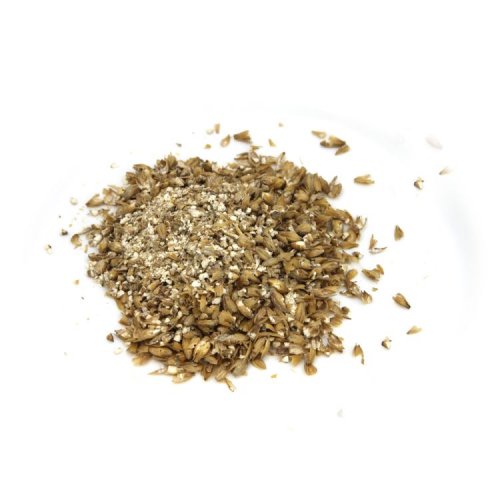Thomas Fawcett Lager Malt freshly crushed on Brew Mart's premises.
Available in three sizes 1Kg, 3Kg and 25Kg both crushed and uncrushed
Light golden colour & sweet wort.
Supplied in bags sealed for freshness
Lager malt is the British adaptation of Pilsner malt.
It is roasted at slightly higher temperatures, from 55C to 82C, and can replace Pilsner malt if unavailable.
Colour 3 EBC; Maximum Percentage 100%
Lager malt, often referred to as lager or base malt, is a type of malt used in beer production, particularly lagers. The malt is the main source of fermentable sugars in the brewing process. Malting is the process of germinating and drying cereal grains, usually barley, to convert the starches within the grain into fermentable sugars.
Lager malt is specifically designed for brewing lagers, a beer known for its clean, crisp, and refreshing characteristics.
The malt is kilned or roasted to a specific level to achieve the lagers' desired colour and flavour profile. It's usually lighter in colour and flavour than other malt types, such as caramel or roasted malts.
During brewing, lager malt is milled to break down the grains and expose the starches. The milled malt is then mixed with hot water in mashing, where the enzymes naturally present in the malt change the starches into sugars. The resulting sugary liquid, wort, is then separated from the spent grains.
Afterwards, the wort is boiled, and hops are added for bitterness, flavour, and aroma. Once the boiling process is complete, the wort is cooled, and yeast is added to ferment the sugars into alcohol and carbon dioxide. This fermentation process occurs at cooler temperatures, a characteristic feature of lager brewing. The resulting beer is then aged for an extended time at low temperatures to allow for flavour development and clarification.
Lager malt provides the essential sugars needed for fermentation and contributes to the overall flavour and body of the beer. It's an integral component in the brewing process, especially for lagers, where the emphasis is on a clean and balanced taste profile.
|
|
|



